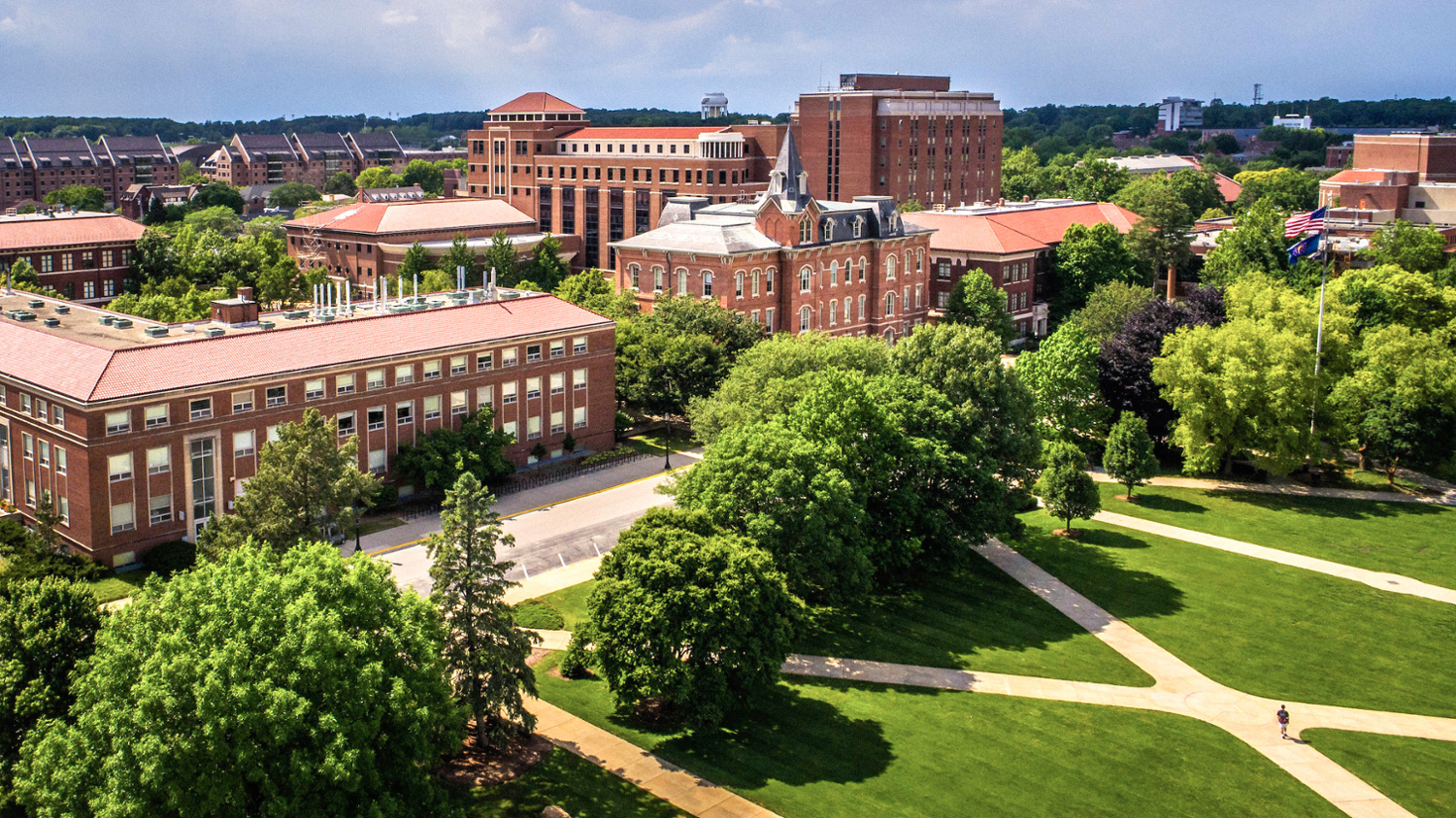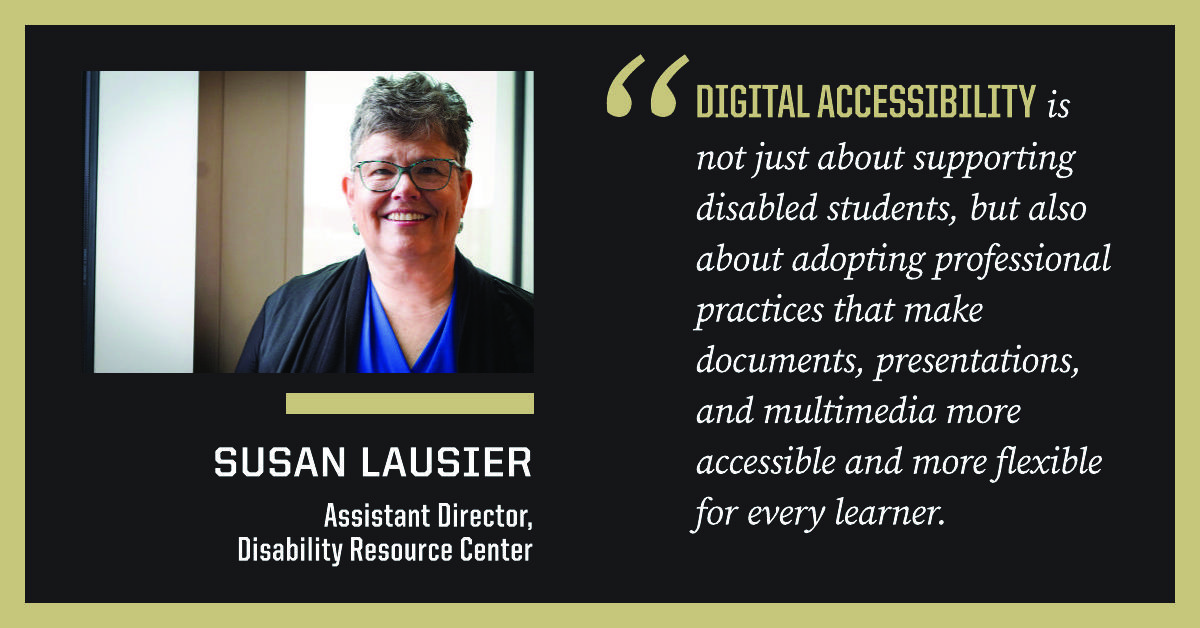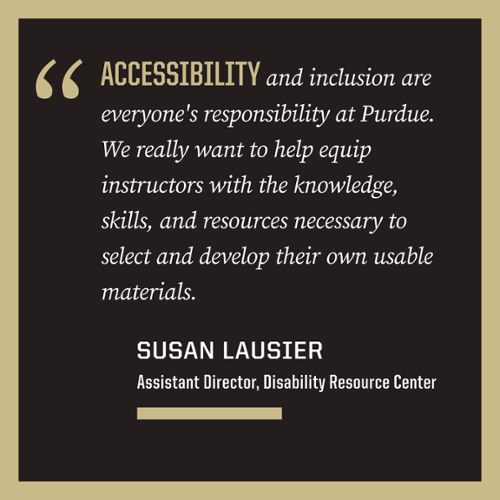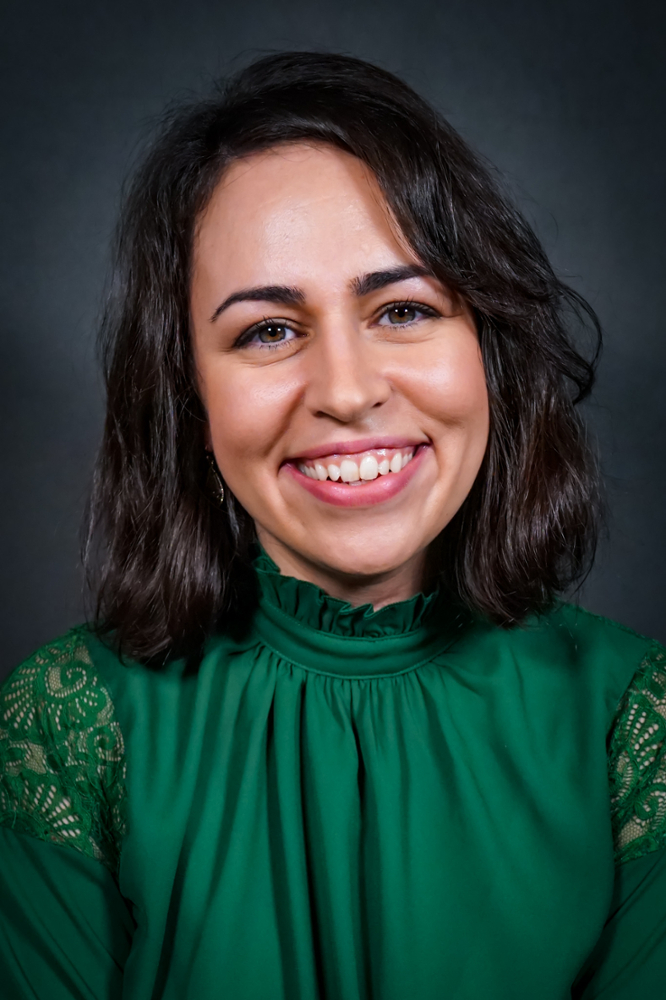
Purdue will launch Usable Materials Center this fall to help instructors improve accessibility of course materials
Last updated: April 22nd, 2022
Purdue’s Disability Resource Center (DRC) will soon launch a Usable Materials Center (UMC) to remove barriers for instructors aiming to improve the usability and accessibility of their course materials.
Susan Lausier, who recently was hired as the DRC’s new assistant director, will oversee the center, which will open in the fall of 2022. One significant aspect of the UMC mission will be to take in course materials and convert them into accessible versions at no cost to the instructor.
Beyond material conversion services, Lausier says the center will provide instructors with:
- Accessibility checks
- Consultation on inclusive design of learning
- Workshops
- Hands-on training
- A physical space on the eighth floor of Young Hall where they can get in-person help
Lausier says the UMC will supplement services already provided by the DRC; existing services include the creation of or conversion to accessible materials for students with disability-related accommodations. However, Lausier say the UMC will broaden the scope of this service, and help instructors be more proactive in creating materials that are inherently more usable for all students.

As one example, Lausier says PDFs generally present more accessibility barriers, most commonly due to the inclusion of images, diagrams, or other non-text elements that exclude learners who use screen readers. However, there are steps that can be taken to mitigate those barriers, including having the faculty, as the subject matter expert, add the description of those elements as alternative text in the PDF, thus making it accessible to a screen reader.
“Digital accessibility is not just about supporting disabled students, but also about adopting professional practices that make documents, presentations, and multimedia more accessible and more flexible for every learner,” Lausier says.

Lausier adds that the massive shift to virtual learning during the pandemic was one of the drivers behind the creation of the UMC, along with the DRC’s goal of providing more resources to instructors. Students’ learning environments are evolving to include more multimedia content—videos, pdfs, and websites—that may not be inherently accessible. She says that digital content created without awareness of accessibility can create unintended barriers. That’s why the UMC will engage faculty in thinking holistically when designing and choosing their course materials—focusing not only on “How do I?” but also “Why do I?”
Though Purdue is responsible for ensuring that all students can access and benefit from an instructors’ course materials and their teaching, there is a timing component as well. The center will aim to support faculty in converting materials proactively, so students don’t have to wait days or weeks to access course content.
“Accessibility and inclusion are everyone’s responsibility at Purdue,” Lausier says. “While the DRC and the UMC will provide the service of converting course materials, we also want to equip instructors with the knowledge, skills, and resources to select and develop their own usable materials on the front-end of the course design process. We also want to foster an ongoing dialogue around this space, and we invite instructors to engage with the UMC in whatever ways will be beneficial to them and their students.”
More information about the UMC will be shared closer to the fall semester with more detailed information about how instructors can access the UMC’s services. Please email Lausier if you have questions in the meantime.

Writer: Andrea Mattingly
Director of Communications for Student Success Programs, andrea@purdue.edu